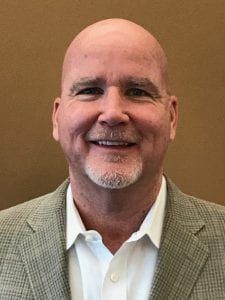
How do you band your team together so that your restaurant hits revenue goals? If you lead a restaurant—whether as a manager or senior executive—it’s vital that you communicate your initiatives and make sure your teams remain focused on the right priorities. You also need to create a culture in which people feel supported and can deliver on their individual roles. In short: for your company to succeed, you need to demonstrate good restaurant leadership.
What are successful ways to lead a restaurant company? We set out to answer this question by interviewing Eric Wyatt, Chief Operating Officer of Boston Market, a fast-casual chain with 425 U.S. stores. Eric has learned from experience that when his company rolls out a new initiative, it’s crucial that he communicates the message and goals effectively so that employees hit their targets and succeed in the new system.
Eric says getting employees to sign on to the company’s goals takes two-way communication that begins with listening. When problems arise, employees want to be heard; when their concerns are heard, they see more value in the company. Eric attributes that lesson to years under the tutelage of many industry mentors at Starbucks, Yum! Brands, and Panera Bread. Here’s our interview with Eric:
ezCater: Leadership is essential to every company’s success, but in a people-intensive business like restaurants, it takes real engagement with employees to get them on board with the company vision. Can you talk about your leadership style and how you achieve that at your restaurant company?
Eric Wyatt: I like to be a good coach with my direct reports. That includes listening to their challenges and learning where they need help and support to break through any barriers. I also like to listen to their successes so that I can share those with others. I say this all the time: it’s about (our) people, (our) customer, and (our) business, and I say it in that order.
ezCater: What skill sets do you find most valuable in a good team leader or direct report?
Eric Wyatt: I look at them more as competencies than skills. You can teach skills. When I look at leadership, I want to know whether they lead by consensus. I try to figure out whether they have a command of what they’re bringing to the table. I look at past experience, and I want to see whether they’re fantastic at planning, organization, and follow-up. Can they speak and articulate their thoughts clearly while also listening to people? Are they sensitive to nonverbal cues? And, of course, they have to have business acumen and understand the profit and loss statement, or P&L.
Lastly, can they handle the ambiguity of the restaurant business? Things that you didn’t prepare for happen every day, whether it’s in the office or in the stores or in the field. But that’s what makes the business fun and exciting. In restaurants, you’ve got to be like a duck: appear calm, cool, and collected on the surface while, underneath, your feet are moving a mile a minute.
ezCater: How do you pinpoint an ideal candidate for a restaurant leader when you have 100 résumés on your desk?
Eric Wyatt: Anybody can write a nice résumé, so you have to be able to sort out the ideal candidates quickly or it gets really challenging. With résumés, I’m looking at what candidates have been able to accomplish and how they’re able to articulate that experience before we ever get to a phone discussion and final interview.
ezCater: Can we talk about another aspect of restaurant leadership? Your company, Boston Market, has restaurants in more than 30 states. What’s the trick to keeping the message consistent from headquarters down to the stores?
Eric Wyatt: Having that consistent “talk-track” is part of it, but you have to actually believe in what you tell them. When you do, it becomes natural. I use the phrase “lather, rinse, repeat” to emphasize the importance of consistency in our organization. Whether it’s delivering rotisserie chicken exactly the same way in New York City, L.A., or Chicago, or taking care of our people internally and externally, it’s ultimately about driving customer satisfaction and being profitable in doing so. We’re obsessed with that talk-track: it demonstrates a consistent message.
At Boston Market we talk in terms of people, customers, and business—and in that order—because we want to be consistent. People are first, delivering guest satisfaction is next, and that gets us the business results. You can’t get to the last two elements unless you’ve accomplished the first. Meaning, if you don’t have the right people in place, you can’t get the last two.
In my earlier years in working in gas and convenience stores and fast food, it was all about results and asking employees, “What have you done for me lately?” Putting value on people first is what’s needed in today’s environment. If you don’t start taking care of your people by having a people-first culture based on empathy rather than results, you’re going to go right past your people. That doesn’t work anymore.
ezCater: Clearly you have to lead simultaneously from 30,000 feet above and on the ground at the restaurant level. Is that part of restaurant leadership difficult to do?
Eric Wyatt: I like straddling both, and it’s important to do that. From a strategic standpoint, it’s slightly harder work. You need to be able to keep your eyes and ears open. You need to listen to what restaurant managers and associates at the store level—or field or support-center partners—are telling you. When you hear about a problem more than two or three times, it’s worth digging into what the need is so you can develop a strategy around that. But at the end of the day, the rubber meets the road in the restaurant.
So, I spend 50 percent of my time [at our headquarters in] Golden, Colorado, and 50 percent in the field. I’ve been part of Boston Market for six months, and I’ve been to about two-thirds of our 425 restaurants. I really think [my efforts are] valued by our team. Employees want to understand who’s running the operational side of our organization and have someone who’ll listen to what they have to say. Sometimes it’s tough to hear their feedback, but it’s valuable that they know you’re listening even though you may not be able to act on it.
ezCater: What do you tell them if you can’t fix the problem immediately?
Eric Wyatt: You have to be able to shoot straight and tell people exactly what you will or won’t be able to do, when—and then explain why.
ezCater: In your 35 years in the food-service business, you’ve been mentored and have mentored others. How generous are people in this industry with sharing their expertise?
Eric Wyatt: It’s a very small world in terms of the hospitality industry, and people are highly receptive to others who ask for help. You have to have the humility to ask others for help. Based on the help I’ve received, I think it’s my responsibility to coach people internally and externally through a mentorship relationship. It’s not only paying it forward; it’ll come back to you.
ezCater: Who mentored you in business?
Eric Wyatt: My father was very influential as a businessman, but he was also a military guy who taught me a very simple lesson: showing up early is on time, on time is late, and late is unacceptable. That’s stuck with me. It still helps me get things done. Watching a leader like Howard Schultz at Starbucks helped me look at restaurant leadership differently; my time there with him was very powerful.
I also try to teach folks not to take themselves so seriously. I love to have fun, so I make it fun for others. You’ve got to keep it loose and make sure others feel comfortable doing that, too. You get the most out of people when they’re having fun. Leading that way helps people sort of say, “Hey, this guy puts his pants on one leg at a time just like everybody else.”
Get more tips on how to lead your catering team more effectively







